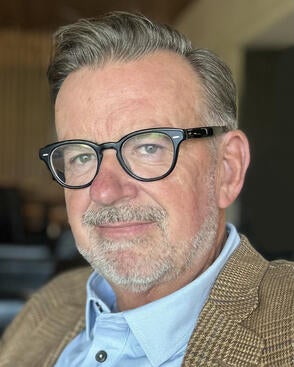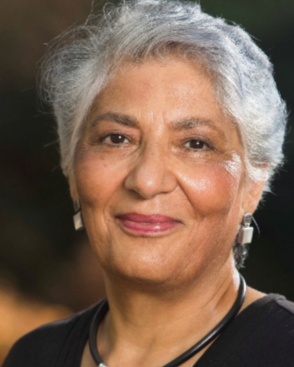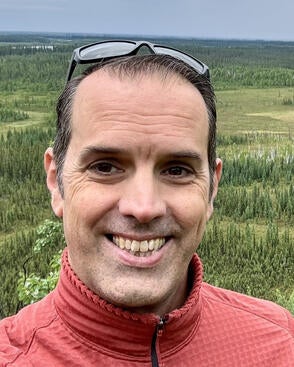The College of Natural & Agricultural Sciences is proud to present the annual Science Lecture Series. Since its inception, CNAS scientists have shared their knowledge and research with students, alumni, faculty, staff, and community members. Each Science Lecture Series topic tackles some of the most pressing issues we face as a local, national, and global community.
The Science Lecture Series is free and open to the public, but registration for each lecture is required. Light refreshments will be served, while supplies last.
Science Lecture Series 2026
Saving Turfgrass in California and the Southwest
James H. Baird, Ph.D.
Professor and Turfgrass Specialist
Department of Botany and Plant Sciences
University of California, Riverside
Website: Turfgrass Science
About Dr. Baird's Lecture
In a region with increasing population, temperature, and drought, and consequential declining water resources, turfgrass is often the primary target for removal or even prohibition from the landscape. Dr. Baird will set the record straight about the functional, aesthetic, and environmental benefits of turfgrass including providing tips for water conservation on lawns and landscapes. Most notably, he will highlight the UCR Turfgrass Breeding & Genetics program that is making significant strides towards developing turfgrasses with improved drought resistance.
About Dr. Baird
Jim Baird has been the Turfgrass Specialist at UCR since 2008. His primary responsibilities include conducting research and providing outreach for the California turfgrass industry. Jim was born and raised in Pueblo, Colorado. He received a B.S. in Landscape Horticulture in 1985 from Colorado State University, a M.S. in Agronomy & Soils in 1989 and a Ph.D. in Botany in 1993, both from Auburn University. Prior to UCR, Jim was an Assistant Professor of Turfgrass Research & Teaching at Oklahoma State and Michigan State Universities, and an Agronomist in the Northeast Region for the United States Golf Association Green Section.
Tuesday, March 3, 2026
Reception: 5-6 p.m.
Lecture: 6-7 p.m.
UCR Palm Desert Center (map)
75080 Frank Sinatra Drive
Palm Desert, CA 92211
Parking is free
Join us on March 3 to learn about innovating turfgrass for a water-smart future
- Discover the new Coachella Bermudagrass and why it matters
- Explore how turfgrass science advances water conservation
- Learn water-smart solutions for lawns and landscapes
- See how to achieve beautiful, resilient green grass with less water
- Get inside the latest innovations in turfgrass research
- Explore education and career pathways in the turfgrass industry
- Connect with researchers, industry professionals, students, homeowners, golfers, HOA leaders, and community members
Everyone is welcome to attend
Prospective high school & middle school students, community members, industry partners, and UCR students, faculty and staff are all encouraged to attend. This event is free and open to the public. Light refreshments will be served.
Plant Metabolites: Nature’s Toolkit for Stress and Survival
Katayoon (Katie) Dehesh
Director, Institute for Integrative Genome Biology
Distinguished Professor
Ernst and Helen Leibacher Endowed Chair in Botany and Plant Sciences
Institute of Genomics Department
Botany and Plant Sciences Department
University of California, Riverside
Website: kdehesh-lab.ucr.edu
About Dr. Dehesh's Lecture
Plants are the foundation of life on Earth, quietly sustaining our food systems, ecosystems, and
atmosphere. Yet today, plants are facing unprecedented environmental stress from rising
temperatures, drought, and changing climates. Because plants cannot move, their survival
depends on an extraordinary ability to rapidly reprogram their internal chemistry. In this talk, Dr. Dehesh explores how plants function as powerful chemical factories, how metabolomics allows us to listen to their chemical responses to stress, and why understanding these processes is essential for building resilient crops and a sustainable future—making UCR the place where this future is being shaped
About Dr. Katayoon (Katie) Dehesh
Dr. Katayoon (Katie) Dehesh is a molecular biochemist and, since 2016, Director of the Institute of Integrative Genome Biology and Ernst and Helen Leibacher Endowed Chair in Botany and Plant Sciences at the University of California, Riverside. She previously held the Endowed Chair of Paul Stumpf in Plant Biochemistry at UC Davis and has a decade of industrial research experience.
Her research examines evolutionarily conserved stress-response mechanisms, focusing on how stress-signaling metabolites are generated and integrated to coordinate cellular processes and organellar cooperativity. Dr. Dehesh has authored over 120 publications, several book chapters, and holds 11 patents. She is a Member of the German National Academy of Sciences Leopoldina, a Fellow of the AAAS, and a former President of the American Society of Plant Biologists (ASPB), one of the world’s leading plant science societies.
Saturday, April 11, 2026
Reception: 12 p.m. -1 p.m.
Lecture: 1 p.m. - 2 p.m.
UCR Main Campus
Student Success Center (SSC)
900 University Avenue
Riverside, CA 92521
Parking is free
What’s Wild in Riverside
Marko J. Spasojevic
Associate Professor
Department of Evolution, Ecology, and Organismal Biology
University of California, Riverside
Website: What's Wild in Riverside
Lab Website: Spasojevic Lab
About Dr. Spasojevic's Lecture
Riverside County includes a diverse landscape of mountains, deserts, forests, grasslands, and cities. Within these habitats reside a variety of wildlife: from the donkeys that eat our lawns and the coyotes roaming through our neighborhoods, to the deer and bears that roam the mountains. In this talk, Dr. Spasojevic will introduce you to the wildlife of Riverside County and discuss how human activities are impacting wildlife.
About Dr. Spasojevic
Dr. Spasojevic is an Army Veteran, and his educational background includes an AS from Shoreline Community College, a BS from the University of Washington, and a PhD in Biological Sciences from the University of California, Irvine. Dr. Spasojevic is a community ecologist working at the interface of ecology, biogeography, and global change. His goal is to understand the mechanisms that influence patterns of biodiversity, and then to use that understanding to address environmental issues. His research combines observational studies across environmental gradients, field experiments, functional traits, and multivariate statistics to address environmental issues and to explore fundamental questions in ecology. He works in a variety of ecosystems, from the alpine tundra of Colorado to the forest, deserts and grasslands of southern California.
Wednesday, April 22, 2026 (Earth Day)
Reception: 5-6 p.m.
Lecture: 6-7 p.m.
UCR Main Campus
University Theater
900 University Avenue
Riverside, CA 92521
Parking is free
Join us for this Special Earth Day Edition of the Science Lecture Series!



